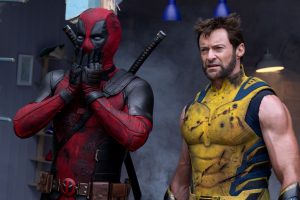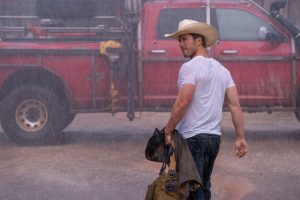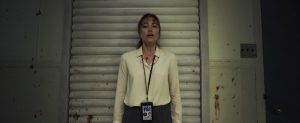Reviews include Deadpool & Wolverine, Doubles, and Mountain Queen: The Summits of Lhakpa Sherpa.
Monster’s Hirokazu Kore-eda on the two entities in his films: ‘children and dead people’
September 25, 2023
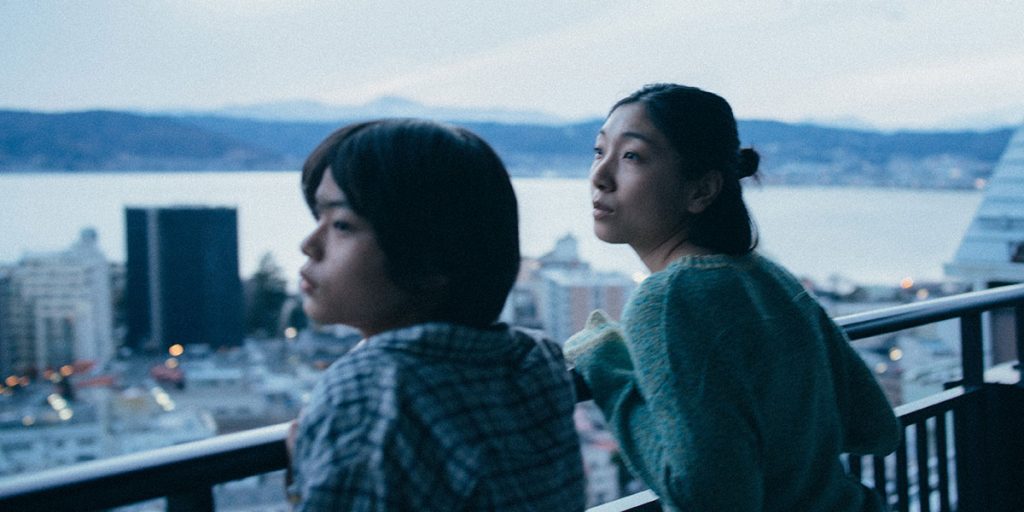
Japanese auteur Hirokazu Kore-eda returned to the Toronto International Film Festival this year with his latest drama, Monster, following his previous hit Broker that premiered at the fest last year and Palme d’Or winner Shoplifters in 2018. Monster also premiered at Cannes in May and took home two awards: the Queer Palm and Best Screenplay (by Yûji Sakamoto).
The story follows a reserved boy, Minato (Sōya Kurokawa) who lost his father when he was young and lives with his mother (Sakura Andō). When he starts behaving strangely, his mother suspects his teacher Hori (Eita Nagayama) and calls a meeting with the school principal (Tanaka Yūko) only to face a wall of silence and stiff apologies. Monster shows three different points of view, very much like a Rashômon-inspired structure that’s beautifully crafted to depict a powerful and sensitive story about the tenderness of children – a theme that Kore-eda often comes back to with his work.
Kore-eda has written his own screenplays since 1995, when he made his debut Mabaroshi. With Monster, though, it’s the first time the filmmaker didn’t pen his own script, instead working with the layered words written by Sakamoto, whose previous screenplays include Crying Out Love in the Centre of the World (2004) and We Made a Beautiful Bouquet (2021).
While on a quick trip to Toronto for the festival, Kore-eda sat down to discuss (via an interpreter) the lens behind his storytelling technique, the tools he loves using, and what he hopes to do next.
Monster is the first time that your are not directing a script that you wrote. What about the script made you want to direct it?
First of all, Sakamoto was talking about writing something and then he had a plot, [but] the whole script wasn’t written yet. It was just a plot and he said he wanted he put out his name to the producer and said, “This is who I want to work with.” Everything was still in a very [early] stage when I got involved and I had always wanted to work with Sakamoto.
It’s also very similar to the themes you’ve explored in the past with family dynamics and the treatment of children.
I really like to film children.
Why so?
It’s not the innocence of children really…when you look at the film, what we’re actually looking at is children being violent towards each other. They’re not always innocent.
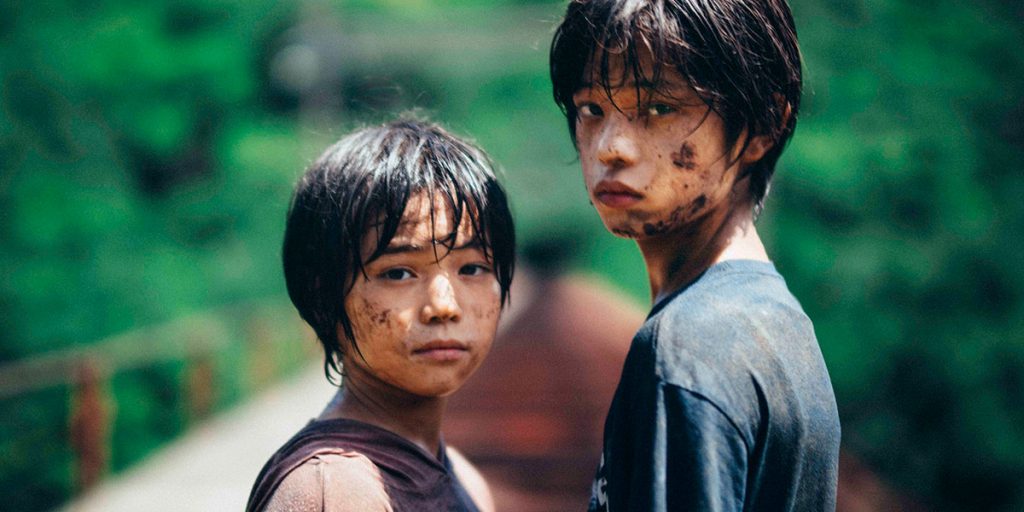
Why children as a focus in your films?
Not all, but most of them, yes. Miyazaki, too, has children as the focus. As you can see in the poster, the photograph of the children [featured above]… they are looking our way and they’re evaluating us adults and they’re saying, “Hey you’re creating this world with monsters everywhere and that’s our world.” In my stories and in my films, if you look, you’ll see there are two [recurring] entities: One is children and the other is dead people. The children and the dead often look back at the world and they criticize and they evaluate and say, “What is it you’re doing?”
What about the Rashômon-style appealed to you?
The plot I received from the very beginning was already in three different chapters. If you look at the movie with Rashômon, the same actors go through each variation of the story but their personalities actually change. They are not truly the same people in each of the stories. It changes their perspective. They have different perspectives; they look at things differently. Whereas, in this case, the story is told from different perspectives, but the individual personalities or characters involved don’t change. I told them that they didn’t have to.
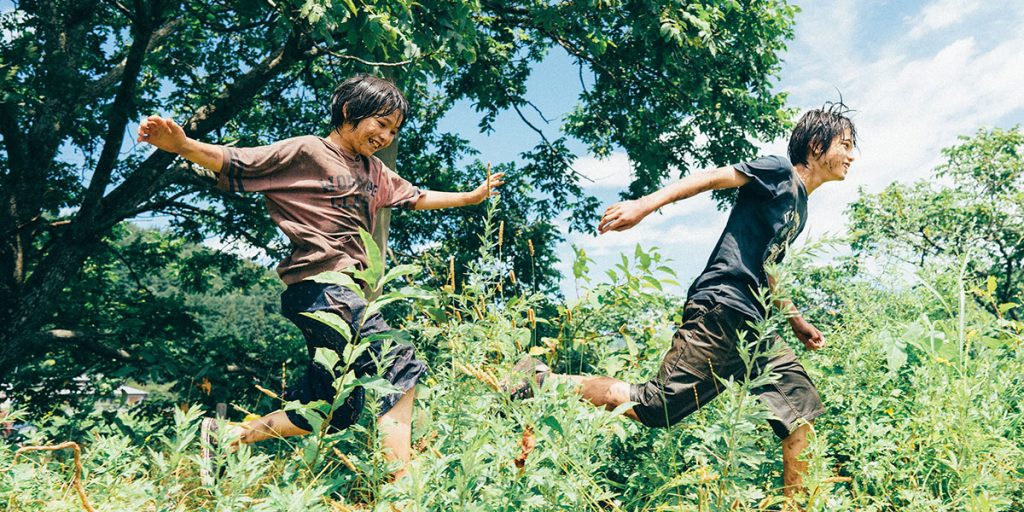
What was the biggest challenge creatively or professionally this time around?
One of the biggest challenges this time was the mudslide. That was actually technically very challenging to be able to pull that off together. Because of the children’s safety, we did have to use some CG.
What are you trying to explore with your own work as a filmmaker in terms of what you have done and would like to do going forward?
There are things that I would like to do in terms of going forward with movies. Stuff that hasn’t really been talked about in Japan. They tend to see themselves as the ones who lost the war. So there’s a victim aspect to it, but there’s also this aspect where they were very aggressive and they were the ones that perpetrated it. What is talked about very little is all the stuff that they did in Asia. Japan was quite ferocious in Asia and that has not been talked about, I’d like to talk about the impact of the Japanese on Asia during the Second World War.
You’re already working on your next film – what can you share about that?
It’s not solid at all. But I want to try in the States.

